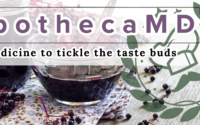Degradation product of curcumin restrain Salmonella typhimurium virulent protein L-asparaginase
J Complement Integr Med. 2021 Dec 3. doi: 10.1515/jcim-2021-0172. Online ahead of print.
ABSTRACT
OBJECTIVES: Salmonella typhimurium is a pathogen responsible for causing a wide range of infectious diseases. The emergence of multi-drug resistance (MDR) in this microbe is a big challenge. L-asparaginase (less explored drug target) is selected as a drug target because it is actively involved in the virulence mechanism. To block this virulent enzyme, curcumin that is traditionally renowned for its medicinal properties was examined. However, its pharmacological behavior and targeting property is less understood because of its poor bioavailability. Therefore, the present work explores the antimicrobial effect of both curcumin and its degradation product against the MDR pathogen.
METHODS: Molecular docking studies were carried out to evaluate the inhibitory effect of curcumin and its degradation product against the L-asparaginase enzyme using Schrodinger Maestro interface tools. The Absorption, Distribution, Metabolism, Excretion and Toxicity (ADMET) profile of all the test ligands was also performed.
RESULTS: The docking score of curcumin was -5.465 kcal/mol while its degradation product curcumin glucuronide has the lowest i.e., -6.240 kcal/mol. All the test ligands showed better or comparable docking scores with respect to control (Ciprofloxacin). Arg 142 and Asn 84 amino acid residues of L-asparaginase were found to be interacting with test ligands inside the binding pocket of the target protein. ADME/toxicology study also indicated the potency of curcumin/curcumin degradation products as a potent inhibitor.
CONCLUSIONS: It was found that both curcumin and its degradation products have the potential to inhibit Salmonella. This information could be valuable for futuristic drug candidate development against this pathogen and could be a potential lead for mitigation of MDR.
PMID:34860475 | DOI:10.1515/jcim-2021-0172

